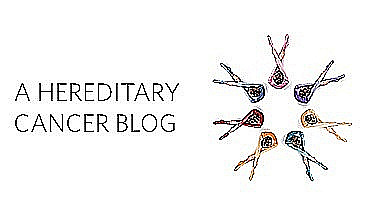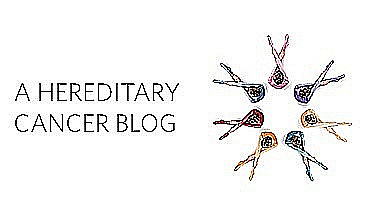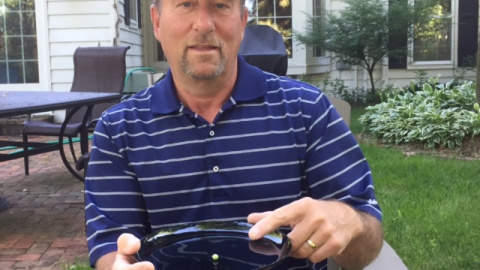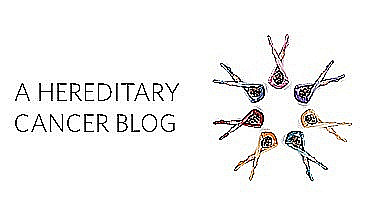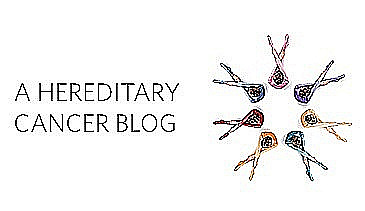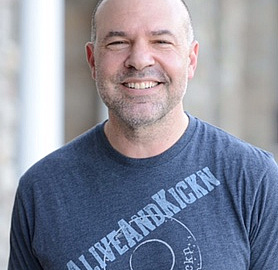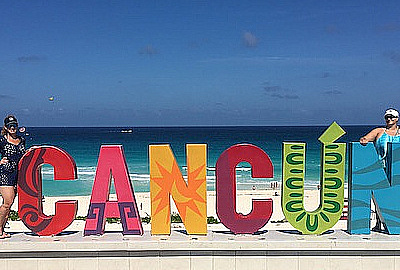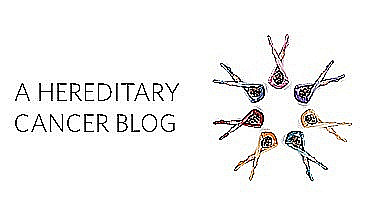- By Tameron Harvell, MSN, RN, FNP-BC
- Posted July 14, 2016
You are Not To Blame
You’ve just received your genetic testing results and no mutation was detected! What a relief to know that your risk for cancer is no greater than that of the average population. Then you look over to your sister who has been told that she does carry a mutation which significantly increases her lifetime risk for cancer. She is faced with many…
- By Tiana Adams, PA-C, MBA
- Posted July 7, 2016
You Need to Know These: Signs and Symptoms of Breast Cancer
My name is Tiana Adams, and I am a practicing Physician Assistant with 18 years of clinical experience. During this time I have worked in many specialties, including Family Practice, Urgent Care, Occupational Medicine, Orthopedics and Breast Cancer Surgery. Currently, I am the Oncology Operations Specialist at Ambry. Moving into this role is something…
- By Dr. Dennis J Ahnen
- Posted July 6, 2016
Colonoscopy: What to Expect, Plus a Few Tips
Colonoscopy is central to the care plan for families with hereditary colorectal cancer (CRC) syndromes, as Georgia Hurst mentioned in her earlier post. Colonoscopic screening is the major means for prevention and early detection of CRC in this setting. It is worth highlighting what you can and should expect when getting a colonoscopy. It is…
- By Bill Rotter
- Posted July 5, 2016
What Does Cancer Feel Like?
Cancer affects us in many ways and can be difficult to detect until symptoms appear causing us to see a doctor. Many cancers grow inside of us and may take longer to detect. Other cancers, such as in my case with breast cancer, can be felt as a small lump. Knowing what cancer feels like may be important in detecting cancer at its earlier stages.…
- By Georgia Hurst
- Posted July 4, 2016
Adjusting to Frequent Colonoscopies
I have Lynch syndrome and a strong family history of early onset colon cancer. Therefore, I must have annual colonoscopies. After my brother died at the age of 36 from colon cancer, I gladly began having colonoscopies every couple of years – way before I even knew I had Lynch syndrome. Just last month I had my 14th colonoscopy and had my first…
- By Deepti Babu, MS, CGC
- Posted June 30, 2016
What Healthcare Providers Learn from Their Patients
When you go to an appointment with your healthcare provider, what do you expect? Information. Discussion. Compassion. Maybe a plan. And for good measure, a joke or two? That’s what I expect, anyway, when things are going well. That combination definitely shifts if things aren’t going well with my health. Then I expect to learn facts, offered…
- By Emily Dalton, MS, CGC
- Posted June 29, 2016
Importance of Family History in Genetic Diagnosis
We’ve all heard that genetics plays a big role in the development of cancer, including both your individual genetics and changes acquired over your lifetime, as well as the genetics of what may be running in your family. Family history is one of the most important tools that providers use when estimating your lifetime risk to develop cancer,…
- By David Dubin
- Posted June 28, 2016
Apple Doesn't Fall Far From The Family Tree
My family history has played a huge part in the perception of cancer awareness from a number of facets. The most notable way is the perception that colon cancer is an “old man’s disease.” While I may be older now, the fact that I was 29 when I developed colon cancer (the first time) makes people stop and think, even if they don’t necessarily…
- By Eve Mart
- Posted June 28, 2016
What did Cancer Teach Me?
It might seem difficult to comprehend, but I think cancer taught me a number of profound life lessons that few people realize until it’s too late. I don’t think I stand alone in that thought. In the face of breast cancer, I’ve seen many women show remarkable strength and do things even they never thought they could do. “You never know how…
- By Alexandria Meyer
- Posted June 23, 2016
What Does a Family with Hereditary Cancer Look Like?
It’s easy and natural to assume that if you have a family history of something, then that something may be genetic. I think this is especially the case when it comes to cancer, as nearly everything we hear in the media and in our culture hammers home the idea that if you have a family history of cancer, you are at an increased risk for it. This…

